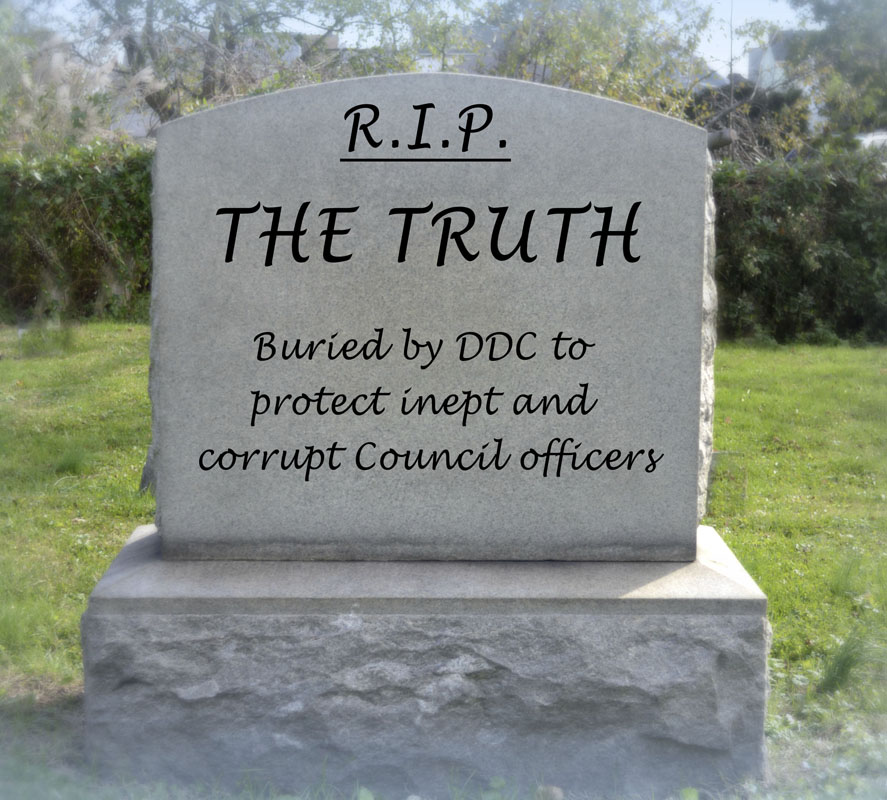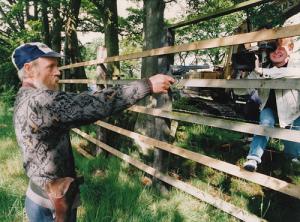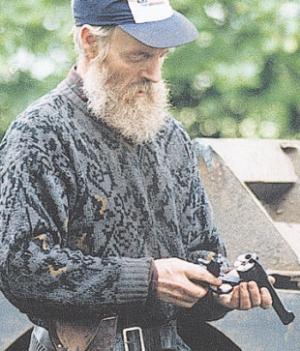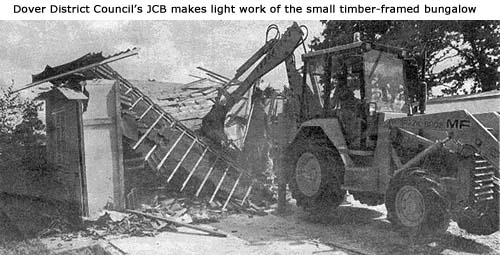It seems to be an unwritten policy of Dover District Council DDC that Councillors must not question the advice of the paid officials and clearly the Planning Committee did not have a clue as to what was going on when they took the decision to demolish my home.
It appears that the paid officials lied to Dover District Council planning committee members when telling them that I had built a new bungalow on a site that had a bungalow on many years ago but which was no longer in existence. They weren’t aware that I had properly purchased a bungalow with long-standing, established residential user rights and that the actual bungalow was still in existence.
Councillors were led to believe that demolition was the only course of action and they were not informed of the correct procedure, as determined by the Town and Country Planning Act, which required me as the owner to return the property to what it was before any alleged breach took place.
A Councillor has admitted that Dover District Council officials deceived the Planning Committee leading up to the demolition of my home. It was also revealed that the Council instigated a crude ‘smear campaign’ against me in order to unfairly influence Councillors to vote for the demolition of my home.
This reinforces the findings of the Council’s own Professional Standards Investigator and Accredited Mediator who also concluded that the Dover District Council Planning Committee were deceived when they reached the decision to demolish my home based on inaccurate and misleading advice.
In a statement, dated May 2009, the Councillor wrote:
“We were misled about the demolition of your bungalow…but at the time I was new to the council and naive enough to believe that officers don’t lie!!!!!
As I was new to the council, I naively believed that the officers would always tell us the truth; something that I came to realise in later years just was not true, as some of them would mislead the council with half-truths or by omissions.
I had a falling out with John Clayton (who was then the Director of Planning and Technical Services) over the way that he misled councillors, and the galling thing is that he professes to be a ‘Christian’ and I understand is very devout when he carries the cross at the church whilst he was involved in misleading the council.
I remember John Clayton stating that: “Mr. Moulder was not married to the woman that he was living with” At the time I did not take much notice of this statement as it would not influence me either way, but I now realise that this was character assassination obviously designed to persuade certain sections of the council to support his view that the property should be demolished, even though this could not even be considered as a planning consideration.
I also remember, and I must admit I was taken in by, Mr Clayton’s statement to the Planning Committee that this was not the first time that such enforcement action had been taken against Mr. Moulder as he had been involved in something similar with another local authority.
As I have stated, I was new to the Council and was very naïve and did believe that the advice given to us by officers would be true and unbiased. In subsequent years I came to realise that some of the officers could not be trusted and would mislead by the use of half truths and omissions to get their own way”.
It is evident that the Director of Planning lied when he told the Planning Committee that I had been involved in a dispute of a similar nature with another local authority. I can state categorically that I have never before been the subject of enforcement action nor, at any time, had even the slightest dispute with any other local authority.
I can only assume the Dover District Council’s Director of Planning made such a false statement in order to unfairly influence the Planning Committee to reach a decision that accorded with his desires.
There is irrefutable evidence that the Council’s action was founded on deceit and incorrect and misleading advice. The present administration is aware of this but continue their persecution in an attempt to cover-up the corruption while at the same time Councillors are protecting the wrongdoings of the paid officials. It appears that the more evidence I collect the more it points to a criminal aspect.
When I contacted Conservative District Councillor Frayne, he replied:
“I have now read again your letter and am struck by your composure. By now I would have been throwing things around. From what I’ve heard you have at very least been diddled by DDC and it seems there is an impenetrable wall around their actions.”
“I cannot abide all this deviousness and naturally cannot put my true thoughts in writing.”
I’m not certain why he couldn’t put his true thoughts in writing, but it seems this is a big part of the problem within Dover District Council DDC. There are many good councillors who are kept in check by the ‘dishonest’ ones running the show. Consequently those who do become aware of incidences of corruption do nothing.






